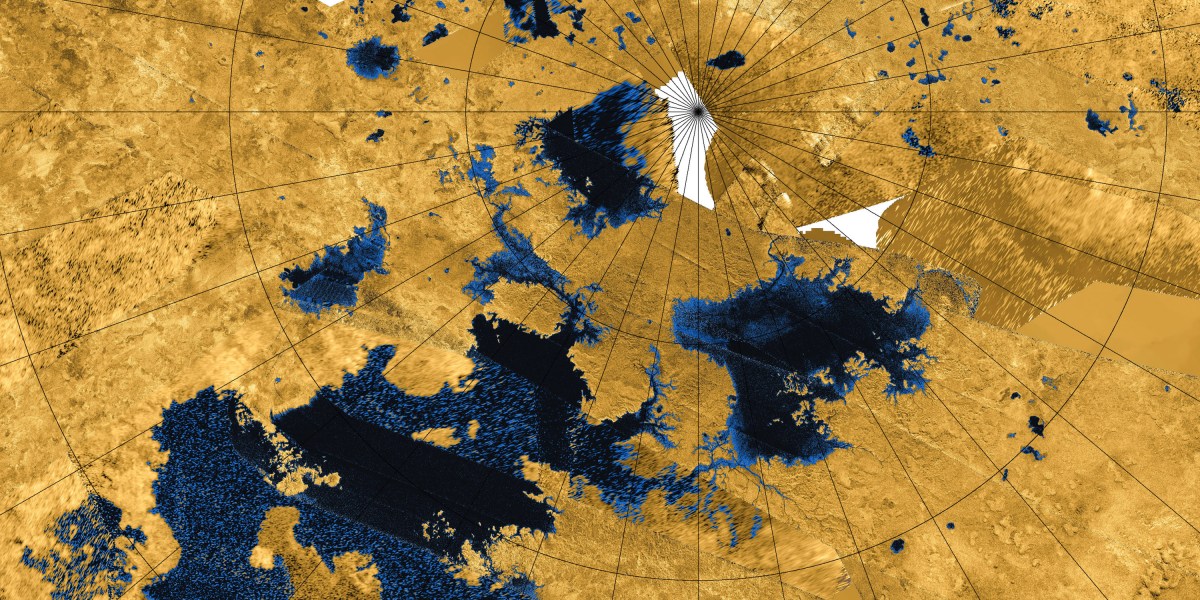“We had the same starting shorelines, and we saw that you get a really different final shape under uniform erosion versus wave erosion,” Perron says. “They all kind of look like the Flying Spaghetti Monster because of the flooded river valleys, but the two types of erosion produce very different endpoints.”
The team mapped the shorelines of the four large seas that were completely imaged by Cassini and applied their modeling to see which erosion mechanism best explained their shapes. They found that all four shorelines resembled those produced by the wave-driven model. “We found that if the coastlines have eroded, their shapes are more consistent with erosion by waves than by uniform erosion or no erosion at all,” Perron says.
The researchers, who note that their results must still be confirmed by direct observation, are now working to determine how strong Titan’s winds must be in order to stir up waves that could repeatedly chip away at the coasts. They also hope to decipher, from the shape of Titan’s shorelines, the directions from which the wind is predominantly blowing.
“Titan presents this case of a completely untouched system,” Palermo says. “It could help us learn more fundamental things about how coasts erode without the influence of people, and maybe that can help us better manage our coastlines on Earth in the future.”

